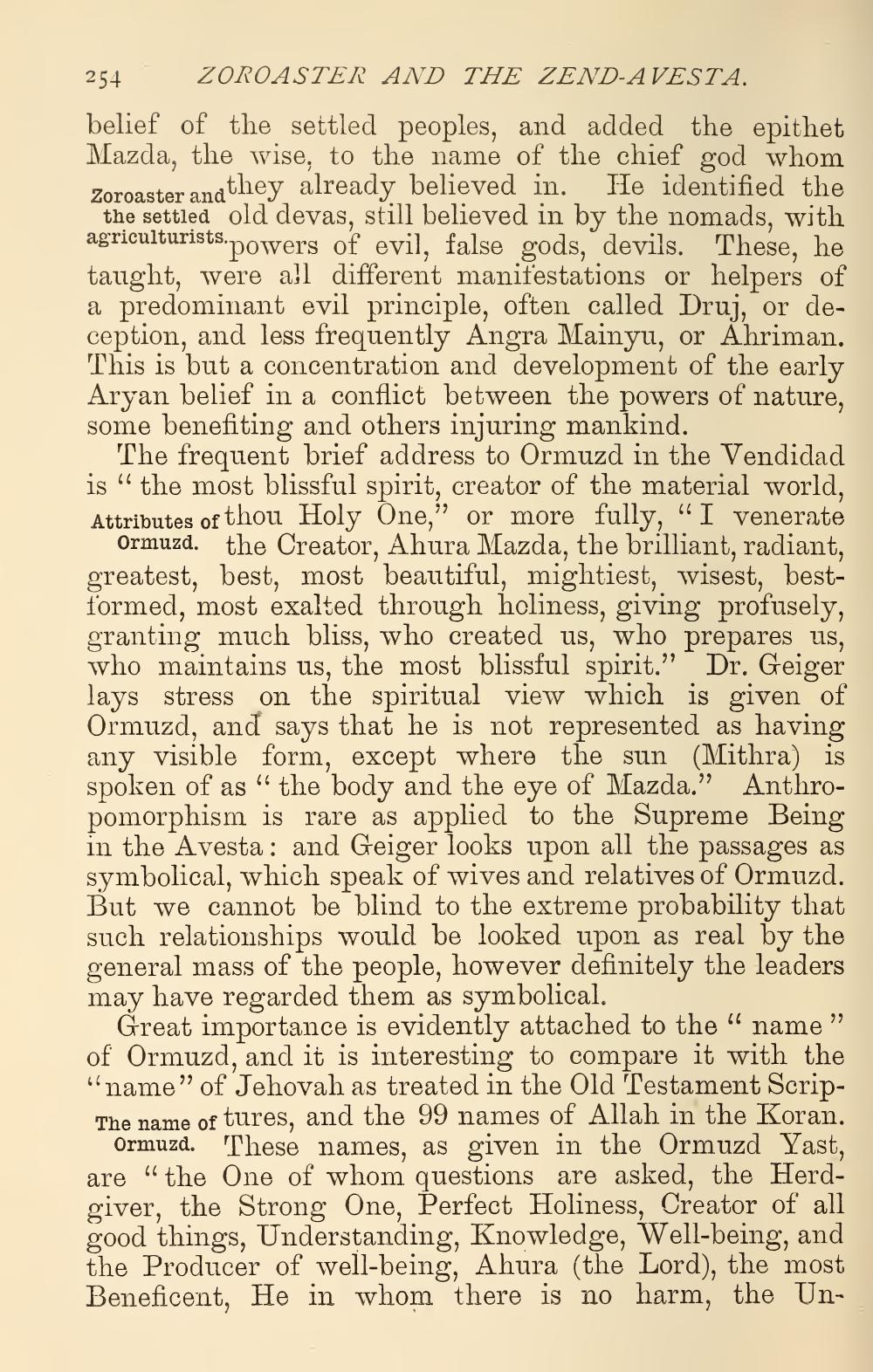________________
254 ZOROASTER AND THE ZEND-AVESTA. belief of the settled peoples, and added the epithet Mazda, the wise, to the name of the chief god whom Zoroaster and they already believed in. He identified the
the settled old devas, still believed in by the nomads, with agriculturists.powers of evil, false gods, devils. These, he taught, were all different manifestations or helpers of a predominant evil principle, often called Druj, or deception, and less frequently Angra Mainyu, or Ahriman. This is but a concentration and development of the early Aryan belief in a conflict between the powers of nature, some benefiting and others injuring mankind.
The frequent brief address to Ormuzd in the Vendidad is "the most blissful spirit, creator of the material world, Attributes of thou Holy One," or more fully, “I venerate
Ormuzd. the Creator, Ahura Mazda, the brilliant, radiant, greatest, best, most beautiful, mightiest, wisest, bestformed, most exalted through holiness, giving profusely, granting much bliss, who created us, who prepares us, who maintains us, the most blissful spirit.” Dr. Geiger lays stress on the spiritual view which is given of Ormuzd, and says that he is not represented as having any visible form, except where the sun (Mithra) is spoken of as “the body and the eye of Mazda.” Anthropomorphism is rare as applied to the Supreme Being in the Avesta: and Geiger looks upon all the passages as symbolical, which speak of wives and relatives of Ormuzd. But we cannot be blind to the extreme probability that such relationships would be looked upon as real by the general mass of the people, however definitely the leaders may have regarded them as symbolical.
Great importance is evidently attached to the " name " of Ormuzd, and it is interesting to compare it with the "name" of Jehovah as treated in the Old Testament ScripThe name of tures, and the 99 names of Allah in the Koran.
Ormuzd. These names, as given in the Ormuzd Yast, are the One of whom questions are asked, the Herdgiver, the Strong One, Perfect Holiness, Creator of all good things, Understanding, Knowledge, Well-being, and the Producer of well-being, Ahura (the Lord), the most Beneficent, He in whom there is no harm, the Un




